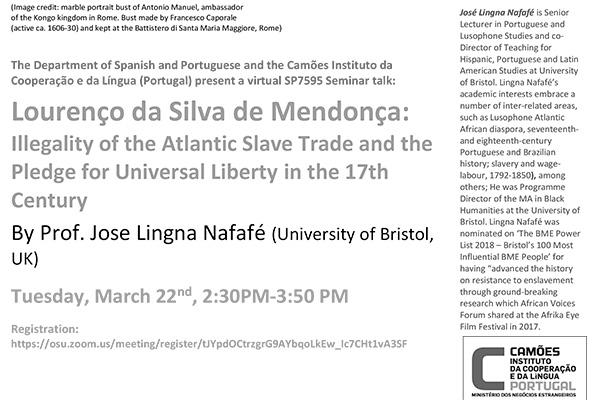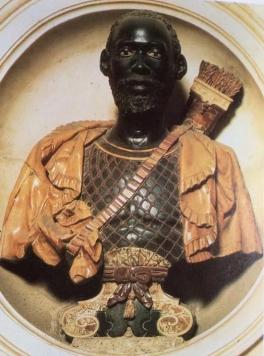
Legal, moral, ethical and political debate on the abolition of slavery has always been understood to have been initiated by Europeans in the eighteenth century. Africans’ involvement on abolition of slavery is often confined to sporadic cases, namely those of ‘shipboard revolts’, ‘maroon communities’, and ‘household revolts’, etc. Notwithstanding, none of these studies have examined the international-scale legal liberation headed by Lourenço da Silva de Mendonça (Mendonça was a member of the Ndongo royal family, rulers of Pedras (Stones) of Pungo-Andongo, situated in what is now modern Angola) in the Vatican, 6th March 1684. His court case on the abolition of slavery not only included Black Africans, but also other constituencies such as New Christians and the Native Americans. I argue that there is a nexus of dialogues that have not been considered together in the context of the Atlantic in the relationship between those Africans seeking abolition, the New Christians and Indigenous people of America, their common search for liberty, and how the denial of religious freedom was connected with the denial of enslaved Africans’ humanity. Mendonça in his legal case questioned the institution of the Atlantic slavery, using four core principles to bolster his argument: Human, Natural, Divine, and Civil Laws. Based on my upcoming monograph to be published by August 2022 with Cambridge University Press; the book reveals, for the first time, how legal debates were headed not by Europeans, but by Africans. In this paper, I will demystify the common knowledge and accepted wisdom on the Atlantic slave trade.

About José Lingna Nafafé
José Lingna Nafafé is Senior Lecturer in Portuguese and Lusophone Studies and co-Director of Teaching for Hispanic, Portuguese and Latin American Studies at University of Bristol. Lingna Nafafé’s academic interests embrace a number of inter-related areas, such as Lusophone Atlantic African diaspora, seventeenth- and eighteenth-century Portuguese and Brazilian history; slavery and wage-labour, 1792-1850), among others; He was Programme Director of the MA in Black Humanities at the University of Bristol. Lingna Nafafé was nominated on ‘The BME Power List 2018 – Bristol’s 100 Most Influential BME People’ for having “advanced the history on resistance to enslavement through ground-breaking research which African Voices Forum shared at the Afrika Eye Film Festival in 2017.
Registration
https://osu.zoom.us/meeting/register/tJYpdOCtrzgrG9AYbqoLkEw_Ic7CHt1vA3SF <
